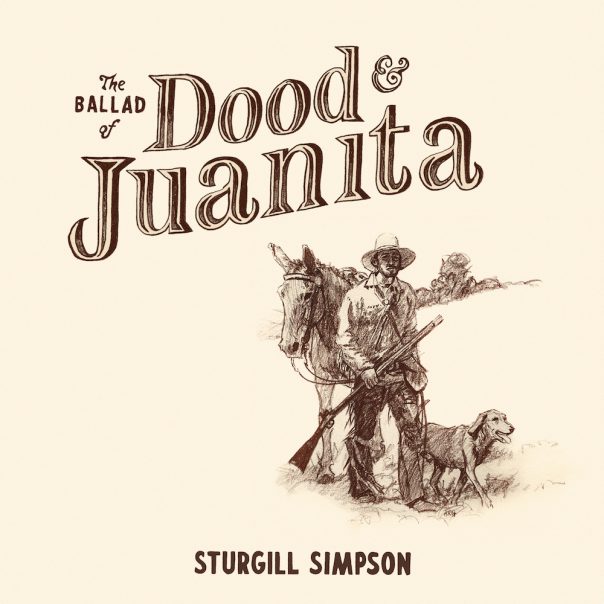REVIEW: Sturgill Simpson tells a western tale on ‘The Ballad of Dood & Juanita’

Sturgill Simpson doesn’t seem one for doing things in the traditional way. He had already released three albums in the last two years—one rock and two bluegrass, despite mostly being a country musician. Then he announced that his latest album—The Ballad of Dood & Juanita, almost exactly a month before its release—was more traditional country and that his goal was to tell a complete story rather than be a collection of songs.
The Ballad of Dood & Juanita
Sturgill Simpson
High Top Mountain/Thirty Tigers, Aug. 20
8/10
Simpson has succeeded at just about every musical experiment he’s attempted so far, so it’s no surprise that he absolutely accomplished his goal here.
Dood & Juanita is less an album than a throwback to singing cowboy Westerns of the ’30s and ’40s. It’s the story of Dood, a half-Shawnee sharpshooter mountain man—though if you call him “half-breed,” he’ll stretch you up and burn you, as “Ol’ Dood (Part I)” explains—who’s settled down and had two kids with the love of his life, Juanita. One day while he’s plowing the field, a bandit shoots Dood in the shoulder and kidnaps Juanita, so Dood picks himself up and follows the bandit’s trail to go get her back.
It’s a simple premise, but one that harkens back to the Westerns that clearly inspired it, and it’s extremely well-executed. For the bulk of the story, the main characters are Dood himself, his mule Shamrock and his dog Sam, who all appear on the album cover.
While there are four songs that explicitly advance the plot, the rest highlight and flesh out the characters, adding surprising emotional weight to what’s going on. “Shamrock,” for example, holds the mule up in the same heroic esteem as Dood himself, echoing the mythology around classic Western horses like Gene Autry’s Champion and Roy Rogers’ Trigger. Being intentionally vague to avoid spoilers, “Sam” is a heartfelt ode to a best friend.
Most notably, “Juanita,” the ode to Dood’s beloved wife, features the legendary Willie Nelson. It’s a legitimately beautiful and well-crafted song. In a meta way, saving the cameo by the legend for the song about Juanita reinforces the story by emphasizing her importance.
If this all sounds vague, that’s intentional. To go any deeper into the album would be spoiling the story, and the story is good enough that you don’t want it spoiled. It’s a clear, traditional three-act story, with well-rounded characters, emotional stakes, classic hero’s journey beats, like the call to action and the ordeal, and a satisfying conclusion.
In his statement announcing the album, Simpson called the story “a simple tale of either redemption or revenge,” but that’s not entirely fair, because at no point is anyone purely vengeful; everyone but the bandit’s actions are justified. If nobody options this for a movie, it would be a shame.
Musically, it’s a country album, but the specific flavor of country serves the story more than anything else. The album is musically cohesive but shifts as appropriate to create the proper tone. It’s a pleasure to listen to. If there’s any complaint to be had, it’s that the bluegrass influence in “Go in Peace” makes the lyrics a bit difficult to understand, which is unfortunate because it also serves as the story’s climax.
Don’t listen to The Ballad of Dood & Juanita while you work. Probably don’t listen at the gym. Take half an hour to sit and listen to it exclusively because every line serves the narrative. It’s a very good story in a very good album, and represents yet another thing Sturgill Simpson does well.
Follow editor Daniel J. Willis at Twitter.com/BayAreaData.
